Share
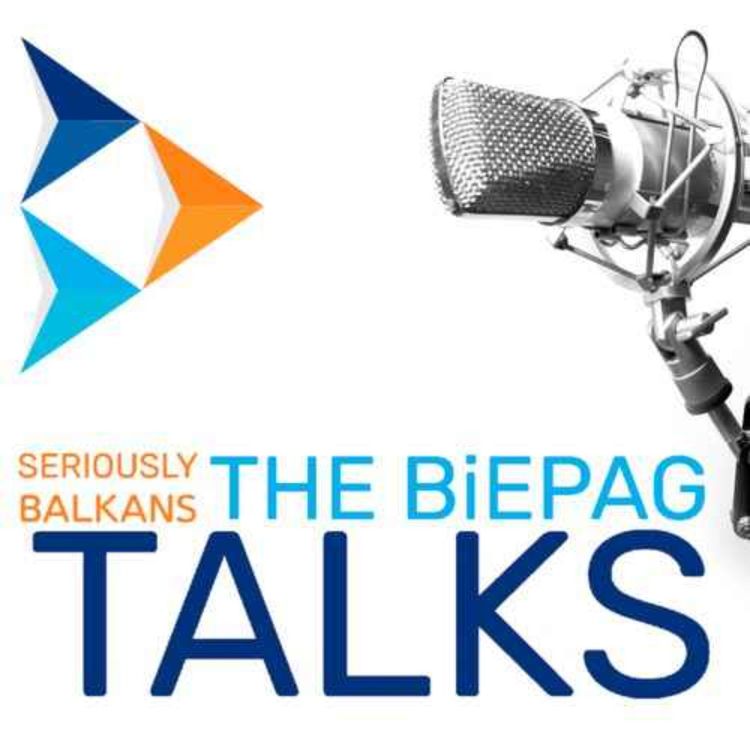
Seriously Balkans - The BiEPAG Talks
Seriously Balkans - The BiEPAG Talks, Episode 5
Every winter the same? Air pollution in the cities of the Western Balkans
Host: Florian Bieber
Guests: Gorjan Jovanovski, EarthCare.ai - North Macedonia and Denis Žiško, Aarhus Centre - BiH
Every winter we have the same picture – heating, traffic, heavy industry and coal fueled power plants are having harmful effects and causing increased air pollution, which is directly connected with many diseases, health problems and a reason for thousands of premature deaths. The winter season across the Western Balkans is all about the bad air quality and listing the capitals of the region among the most polluted cities in the world.
Green Transition in the Western Balkans and the Role of External Actors
Host: Tena Prelec
Guests: BiEPAG Members Dimitar Bechev, Nikos Tzifakis, Marika Djolai, Donika Emini and Vujo Ilic.
The Balkans in Europe Policy Advisory Group conducted a comprehensive study on the geopolitics of the green energy transition in the Western Balkans. The study is based on desk research, several detailed case studies and an opinion poll conducted between March and April 2023 in Albania, Bosnia and Herzegovina, Kosovo, North Macedonia, Montenegro and Serbia. BiEPAG Members and experts that were involved in this research project are discussing the main findings on the Green Energy Transition in the Western Balkans and the role of external actors.
More episodes
View all episodes
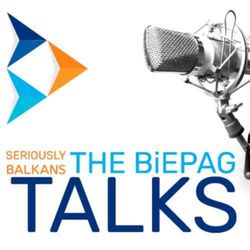
21. Seriously Balkans - The BiEPAG Talks, episode 21
38:18||Ep. 21In 2025 we saw fractures emerging in the transatlantic alliance as the second Trump administration pushed a new foreign policy vision focused on a sovereigntist understanding of spheres of influence. Repeatedly Europe, and foremost the European Union, have been sidelined as partners and often depicted as adversaries. We explore the implications of this emerging transatlantic rift on the countries and region of the Western Balkans.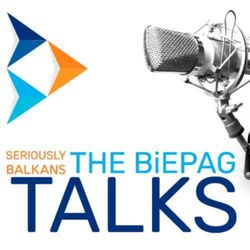
20. Seriously Balkans - The BiEPAG Talks, episode 20
27:29||Ep. 20Dayton at 30: Bosnia’s Post-War GenerationThis year marks the 30th anniversary of the signing of the Dayton Peace Agreement. Since then, a whole generational change has happened, but in terms of constitutional arrangements they have remained frozen for three decades.2025 has seen a lot of reflections on this topic, but we are going to explore it from a different angle. Today we’re talking about what “Dayton” means for young people in the country, those who were born after the war of the 1990s ended.Host: Damir Kapidžić, BiEPAG memberGuests:Tahir Herenda, Teaching assistant at the Law Faculty, University of SarajevoNikolina Lozo, Teaching assistant at the Law Faculty, PIM University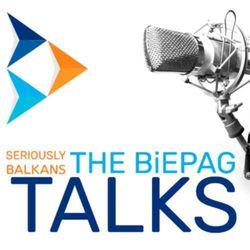
19. Seriously Balkans - The BiEPAG Talks, episode 19
33:15||Ep. 19The Predicament of Media and Press Freedom in the BalkansDuring 2025, press freedom and independent journalism have come under sustained attack. The war in Ukraine, the genocide in Western Asia, and the political rise of extremist parties have all contributed to the erosion of one of the core pillars of democratic societies.In the Balkans, governments with increasingly authoritarian tendencies have for years exerted pressure on non-aligned media, disregarding the very European standards they are expected to uphold as EU candidate states.USAID - the U.S. agency that supported journalists and media organizations worldwide — has been shut down by President Donald Trump. Voice of America has not updated its homepage since March. Radio Free Europe faces a severe funding crisis. N1 and Nova TV continue to operate under intense political pressure. And in July, the region’s largest media outlet, Al Jazeera Balkans, abruptly closed without a clear explanation.So, is media pluralism in the Balkans under attack? And what does escalating political pressure mean for journalists - and for the public?Host: Giorgio Fruscione, BiEPAG member I Italian institute for international political studiesGuests:Lejla Mazlić, Communication and Engagement Lead and former Al Jazeera Balkans Slobodan Georgiev, News Director at TV Nova S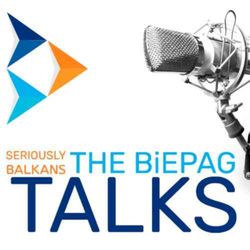
18. Seriously Balkans - The BiEPAG Talks, episode 18
37:40||Ep. 18A Change in Republika Srpska?Host: Damir Kapidžić, BiEPAG memberGuests: Dženeta Karabegović, Associate Professor at the University of Salzburg, and Vedran Džihić, a member of BiEPAGThis episode reflects on developments that have been keeping Bosnia and Herzegovina on edge. In the past year, the longtime leader of Bosnian Serbs and president of the ruling SNSD party, Milorad Dodik, was sentenced by the Court of Bosnia and Herzegovina. He was sentenced to one year in prison, a sentence he commuted, removed from the office of President of Respublika Srpska, a subnational entity of BiH, and barred from holding public office for six years. He still disputes the sentence, even I though it is final. Since then, early elections were held in RS to fill his vacated, which were won by Siniša Karan, Dodik’s chosen successor. The shifting dynamics of the transatlantic alliance and general elections scheduled for October 2026 for their complicate the situation. To what all of this means and if we can expect a change in RS and for BiH?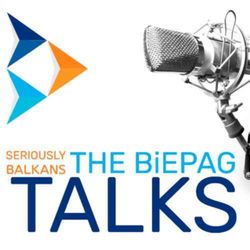
17. Seriously Balkans - The BiEPAG Talks, episode 17
33:02||Ep. 17Kosovo on the Edge: Democracy, Deadlock, and GeopoliticsIt’s been an eventful year in Kosovo. New general elections are a possible scenario while the country is still navigating local elections, with the first round on 12 October and the second round expected on 9 November.In this episode, we unpack what’s at stake:· Can Kosovo’s institutions hold under pressure?· What does the return of Serbs in the four northern municipalities mean?· How do we move on from a year marked by political crises, and what’s at stake for the future?Hosted by Donika Emini – BiEPAG member🎙 Guests:• Ilir Deda, Senior Research Fellow at KIPRED & Europe’s Futures Fellow• Jovana Radosavljević, Executive Director of New Social Initiative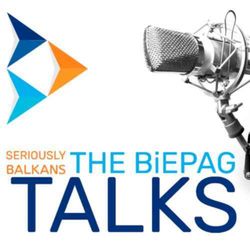
16. Seriously Balkans - The BiEPAG Talks, episode 16
38:18||Ep. 16The Evolving Role of the European Political CommunityHost: Donika Emini, BiEPAG MemberGuests:Odeta Barbullushi, Resident Professor at the College of Europe, Tirana Campus, and BiEPAG memberTristan Aureau, Director, Centre for Analysis, Planning and Strategy, Ministry of Foreign Affairs, France.Donika Emini, BiEPAG member and co-host of this episode, discusses the evolving role of the European Political Community, a forum born out of crisis, now standing at a critical juncture. With Albania hosting the sixth summit in Tirana, and Europe faces simultaneous security challenges from Ukraine to the Middle East, and regional frictions in the Western Balkans, the question is urgent.Can the European Political Community help the European unity in an age of uncertainty?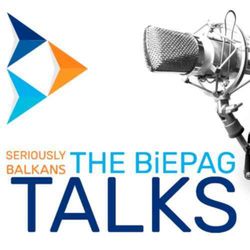
15. Seriously Balkans - The BiEPAG Talks, episode 15
27:22||Ep. 15What the new German Government means for the Balkans?Host: Florian Bieber, BiEPAG CoordinatorGuests: Frauke Seebass,Visiting Fellow, SWP & Associate Researcher, DGAP and Adi Ćeramagić, Senior Analyst, ESIThe new German government of Friedrich Merz announced in its coalition agreement that it would prioritize reforms over enlargement. What this means for the Western Balkans and how the new government is expected to handle the key challenges in the region, from the mass protests in Serbia to the political crisis in Bosnia is the topic of Seriously Balkans.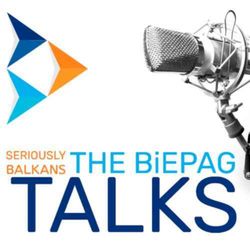
Seriously Balkans - The BiEPAG Talks, episode 14
31:51|Kosovo’s 2025 Parliamentary Elections and the Shifting Geopolitical LandscapeHost: Damir Kapidžić, member of BiEPAG Guests: Donika Emini, member of BiEPAG and Gëzim Krasniqi, Lecturer at the University of EdinburghOn February 9th, 2025, Kosovo held Parliamentary elections, the first after a full government term since independence. Prime Minister Albin Kurti’s party, which previously won a landslide victory, secured around 40% of the vote this time, making a coalition government likely. Kurti’s tenure has been marked by tense relations with Belgrade, as well as a complicated dynamic with the EU and the US. What can we expect from a possible second term for Kurti, and how will the rise of a new, more aggressive US foreign policy under President Trump impact its relation towards Kosovo and the Western Balkans? What is the role of the EU and will it be able to step up its commitment towards Kosovo? To unpack the election results and their broader implications, we are joined by Gëzim Krasniqi, Lecturer at the University of Edinburgh, and Donika Emini, a member of BiEPAG. Tune in for a deep dive into Kosovo’s evolving political landscape.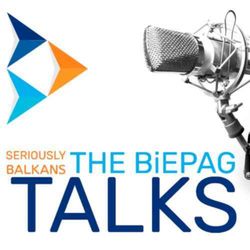
Seriously Balkans - The BiEPAG Talks, episode 13
27:32|Student Protests in SerbiaHost: Florian Bieber, BiEPAG CoordinatorGuests: Danica (anonymous based on the request of the student plenum), Faculty of Chemistry, University of BelgradeStudent (anonymous based on the request of the student plenum), Philosophical Faculty, University of BelgradeWe want to change the country, so we don’t have to leave the country, is a central theme of the thousands of students and other citizens filling the streets of Serbia. In the largest protests in Serbia and the entire region for decades, students, joined by other citizens, have been on the street for three months. In addition to commemorating the 15 victims of the collapse of the canopy at the Novi Sad train station, they demand that the institutions investigate the causes of the accident and publish the details that led to it. Beyond that, the protests have become a rallying point for demands for the rule of law and democracy. Florian Bieber discusses the demands, the protests themselves and the atmosphere with two student representatives from the University of Belgrade.